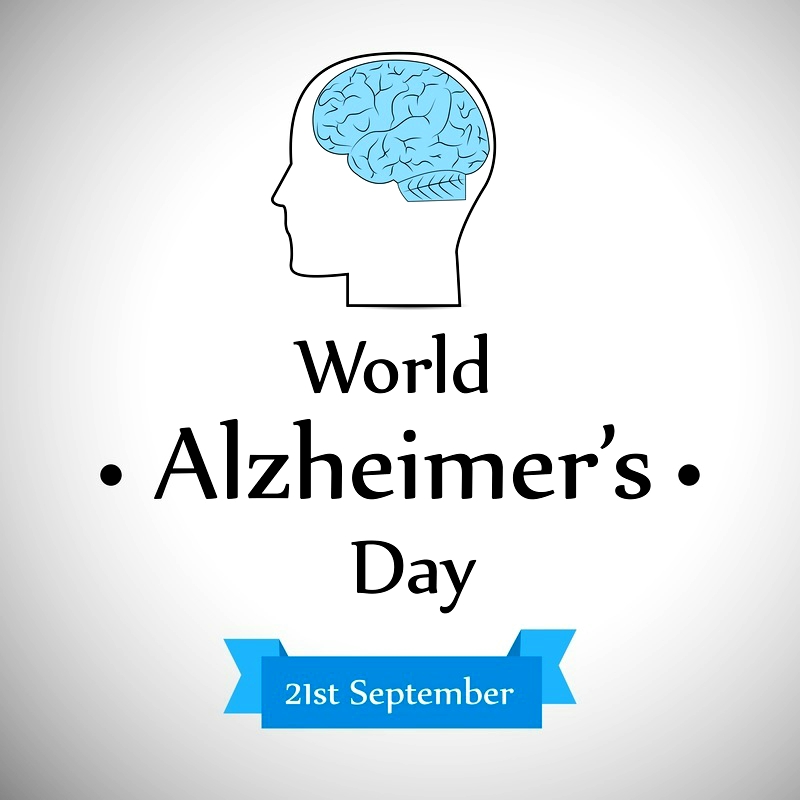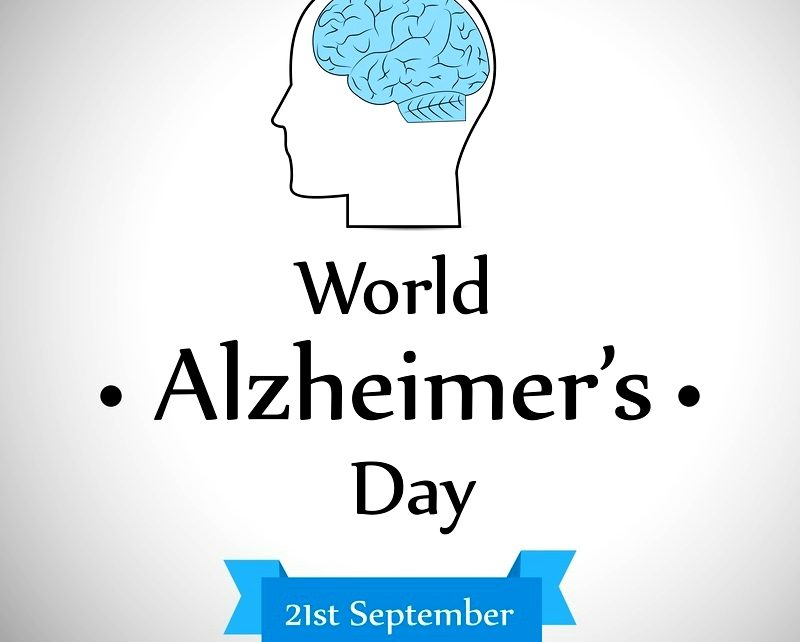
World Alzheimer’s Day :: 21st of September each year.
World Alzheimer’s Month is the international campaign every September to raise awareness and challenge the stigma that surrounds dementia. September 2018 will mark the 7th World Alzheimer’s Month. The campaign was launched in 2012: World Alzheimer’s Day is on 21 September each year.
2 out of every 3 people globally believe there is little or no understanding of dementia in their countries.The impact of World Alzheimer’s Month is growing, but the stigmatisation and misinformation that surrounds dementia remains a global problem, that requires global action.
Alzheimer’s is a progressive disease that impairs memory and other mental functions. It is the most common form of dementia that generalizes memory loss and loss of other essential cognitive abilities that are serious enough to interfere with an individual’s daily life.
Since its inception, the impact of World Alzheimer’s Month is increasing. However, the stigmatisation and lack of information surrounding dementia remains to be a global problem that calls for global action. Most people often think that this disease is a normal part of ageing.
Though this may not be true, a greatest risk factor for Alzheimer’s disease is increasing age. This is evident by majority of Alzheimer’s patients being 65 years or older. This doesn’t completely classify the disease as an elderly disease. This is because there are approximately 200,000 Americans under 65 suffering from disease.
The symptoms of Alzheimer’s disease often come on slowly. It might start when someone has trouble recalling things that just happened or putting thoughts into words. But over time, the problems get worse. People in the later stages of the disease usually can’t live alone or care for themselves.
There are three main phases of Alzheimer’s: mild, moderate, and severe. Each stage has its own set of symptoms.
Mild Alzheimer’s
The first stage usually lasts from 2 to 4 years. The symptoms include:
Having less energy and drive to do things
Less interest in work and social activities and spending more time just sitting, watching TV, or sleeping
Loss of recent memories, like forgetting conversations and events that just happened
Language problems, like trouble putting their thoughts into words or understanding others
Mild coordination problems, such as trouble writing or using familiar objects.
A hard time with everyday tasks, such as following a recipe or balancing a checkbook
Mood swings that involve depression or a lack of interest
Trouble with driving, like getting lost on familiar routes
When a person has one or a few of these issues, it doesn’t necessarily mean he has Alzheimer’s. There are other medical conditions that can cause the same problems, such as:
Conditions that affect metabolism, such as a thyroid problem
Drug abuse
Taking medications that don’t work well together
Parkinson’s disease
Stress
Depression
A doctor can check on these symptoms and do tests to know if a person has Alzheimer’s or something else.
Moderate Alzheimer’s
This is when memory loss gets worse and starts to cause problems in daily life. This stage can last from 2 to 10 years.
Someone with moderate Alzheimer’s may start to forget details about his life, like where he went to high school or when he got married. He may not recognize or remember family members and friends. He might also forget where he leaves things and can’t retrace his steps to find them.
Other symptoms at this stage can include:
Rambling speech
Trouble coming up with the right words and using the wrong ones
A hard time planning or solving problems
Confusion about time or place. He may get lost in places he’s been before. Once he’s there, he may not know how or why he got to that place.
Not dressing for the weather
Getting angry or upset easily, sometimes lashing out at family or caregivers
Trouble sleeping
Wandering
Delusions, such as thinking a caregiver is trying to hurt him
Some people with moderate Alzheimer’s also become more aware that they’re losing control of their lives, which can make them even more frustrated or depressed.
Severe Alzheimer’s
The third stage, also known as late Alzheimer’s, is the most severe. It typically lasts 1 to 3 years.
People in this phase might have some or all of these symptoms:
Major confusion about what’s in the past and what’s happening now
Can’t express themselves, remember, or process information
Problems with swallowing and control of their bladder and bowels
Weight loss, seizures, skin infections, and other illnesses
Extreme mood swings
Seeing, hearing, or feeling things that aren’t really there, called hallucinations
Can’t move easily on their own
Alzheimer’s or Normal Aging?
Just about everyone has minor memory glitches as they get older. If someone forgets a name or why he walked into the kitchen, that doesn’t mean he has Alzheimer’s.
The main problem that defines the disease is trouble planning and handling day-to-day tasks, like paying bills, managing a checkbook, or using familiar appliances around the house.
What You Can Do
If you think you notice the signs of Alzheimer’s in yourself or a loved one, the best thing to do is to talk to a doctor. He can let you know what the symptoms mean and what your options are for treating them.



